Introduction of Master Health Checkup
Having a frequent checkup is essential for overall well-being, and health is wealth. Preventive healthcare has become critically important due to recent medical developments. Regular checkups aid in the early diagnosis of illnesses, enabling prompt medical treatment.
There are many different kinds of checks, but the Master Health Checkup and the Basic Health Checkup are the ones that people usually talk about. Although both aim to determine a person’s health state, they vary greatly in the tests they use, the extent to which they examine, and their overall goals. Picking one over the other could be difficult if you don’t know what to expect from either. Learn more about these exams, including how they work, what sets them apart, and which ones are best for you, in our detailed guide.
Understanding the Purpose of Master Health Checkup
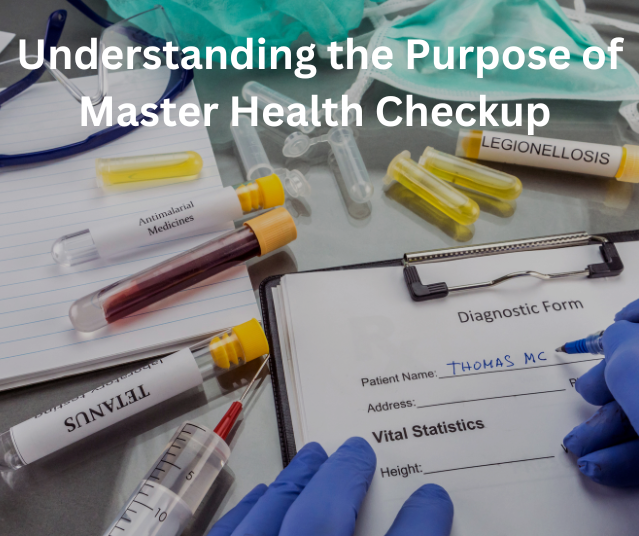
Health checkups are designed to detect potential health issues before they turn into serious complications. Many diseases, including diabetes, hypertension, and even cancer, show no symptoms in their early stages. A proper health checkup can uncover these hidden conditions, allowing individuals to make necessary lifestyle changes or seek treatment before the problem escalates.
A Basic Health Checkup is a general screening package that focuses on the most common health markers, helping individuals keep track of their overall health. On the other hand, a Master Health Checkup provides an in-depth analysis of a person’s health, covering a broader range of tests, including advanced screenings that are crucial for detecting chronic or life-threatening diseases at an early stage.
What is a Basic Health Checkup?

Regularly scheduled medical exams that aim to measure basic health characteristics are known as basic health checks. A battery of vital signs and metabolic function tests are part of it. People who are typically healthy but still want to keep tabs on their health from time to time will benefit most from this type of checkup.
Tests Included in a Basic Health Checkup:
- Complete Blood Count (CBC): Evaluates red and white blood cells, hemoglobin levels, and platelet count to detect anemia, infections, or blood disorders.
- Blood Sugar Test (Fasting & Postprandial): Helps diagnose diabetes or prediabetes conditions.
- Lipid Profile: Measures cholesterol levels, including HDL, LDL, and triglycerides, to assess heart disease risk.
- Blood Pressure Check: Identifies hypertension or hypotension risks.
- Urine Routine Examination: Detects urinary tract infections, kidney disorders, or metabolic issues.
- Liver Function Test (LFT): Checks liver enzymes and bilirubin levels to detect liver diseases.
- Renal Function Test (RFT): Assesses kidney health by measuring creatinine and blood urea nitrogen (BUN).
- ECG (Electrocardiogram): Evaluates heart function to detect irregularities.
Who Should Opt for a Basic Health Checkup?
- Young adults and middle-aged individuals with no major health complaints.
- People who want to track their general health status.
- Those with a family history of diabetes or hypertension but no symptoms yet.
- Individuals looking for an affordable, quick screening of key health markers.
What is a Master Health Checkup?
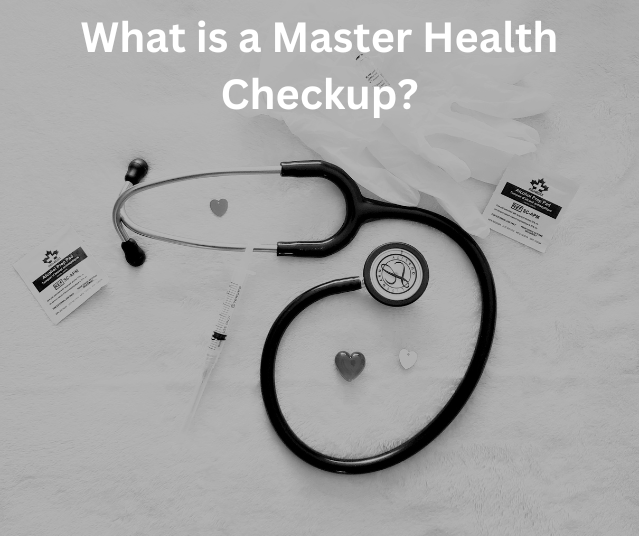
All the tests included in a Basic Health Checkup and many more advanced screenings are part of a Master Health Checkup, which is an exhaustive evaluation of your health. Focussing on several organ systems and possible risk factors for chronic diseases, it offers a comprehensive assessment of overall health. People over the age of 40 or those who have health issues to begin with might benefit greatly from this screening.
Tests Included in a Master Health Checkup:
- All Tests in a Basic Health Checkup
- Thyroid Function Test (T3, T4, TSH): Checks thyroid hormone levels to detect hypothyroidism or hyperthyroidism.
- Vitamin D & Vitamin B12 Tests: Identifies deficiencies affecting bone health and neurological function.
- Cancer Screening (PSA for men, Mammogram & Pap Smear for women): Detects early signs of prostate, breast, or cervical cancer.
- Cardiac Risk Assessment: Includes advanced tests like Echocardiogram, Stress Test, and High-Sensitivity CRP Test to evaluate heart disease risks.
- Lung Function Test (Pulmonary Function Test – PFT): Assesses lung capacity and identifies respiratory conditions such as COPD or asthma.
- Hormonal Panel: Measures levels of key hormones such as insulin, cortisol, and reproductive hormones.
- Advanced Imaging Tests (Ultrasound, MRI, or CT scans): Detects abnormalities in major organs.
Who Should Opt for a Master Health Checkup?
- Individuals above 40 years of age.
- People with a family history of heart disease, cancer, or diabetes.
- Those with existing chronic conditions like hypertension, obesity, or metabolic disorders.
- High-stress professionals who want a thorough health assessment.
- Individuals experiencing persistent fatigue, hormonal imbalances, or unexplained weight fluctuations.
Key Differences Between Basic and Master Health Checkup
Here are the key differences between the two:
1. Scope of Tests
- Basic Health Checkup:
- Includes necessary tests to assess general health as part of a basic health checkup.
- These usually consist of a basic physical examination, measurement of blood pressure, and basic blood tests (such as CBC, blood sugar, and cholesterol), as well as analysis of urine.
- Master Health Checkup:
- More comprehensive and extensive.
- Includes everything in the Basic Checkup plus more tests to determine how well our organs are working (liver, kidneys, etc.), an electrocardiogram (ECG), a chest X-ray, an ultrasound, testing for your thyroid, and more in-depth blood work (e.g., vitamin levels, hormone levels).
2. Target Audience
- Basic Health Checkup:
- People who are in generally good health or who do not have any noticeable symptoms but would like a broad assessment of their health might benefit from a basic health checkup.
- Master Health Checkup:
- Master Health Checkup: Usually suggested for people over a particular age or with pre-existing health issues, this checkup is for those who desire a thorough evaluation of their health in order to prevent chronic diseases or who are at a higher risk of developing such diseases.
3. Cost
- Basic Health Checkup:
- Because it includes fewer tests and exams, the Basic Health Checkup is less expensive than the Master Health Checkup.
- Master Health Checkup:
- Expensive because of the wide variety of tests and in-depth analysis included in the Master Health Checkup.
4. Duration
- Basic Health Checkup:
- Basic health checks typically take less time than more extensive exams since they include fewer tests and procedures.
- Master Health Checkup:
- Depending on the amount of tests and the complexity of the examinations involved, a master health checkup could take anywhere from a few hours to a day.
5. Depth of Investigation
- Basic Health Checkup:
- Emphasises checking for overall health and detecting any apparent health issues.
- Master Health Checkup:
- When you get a Master Health Checkup, your doctor digs deeper to find illnesses like hormonal imbalances, kidney difficulties, or early warning symptoms of heart disease.
6. Follow-Up Recommendations
- Basic Health Checkup:
- A basic health checkup will usually give you the rundown and some basic advice, but it can miss more serious or complicated problems.
- Master Health Checkup:
- The Master Health Checkup provides a more in-depth evaluation, often with the help of expert consultations, and the findings from which may stem additional research or targeted medical interventions.
Which Health Checkup Should You Choose?

Choosing between a Basic and Master Health Checkup depends on several factors, including age, medical history, lifestyle, and budget. If you’re young, generally healthy, and looking for a routine evaluation, a Basic Health Checkup should suffice. However, if you have risk factors for chronic diseases, a sedentary lifestyle, or symptoms of an undiagnosed condition, a Master Health Checkup is highly recommended.
Benefits of Regular Health Checkups
Regardless of which type of checkup you choose, regular health screenings offer numerous benefits:
- Early Disease Detection: Identifies conditions before symptoms appear, increasing chances of successful treatment.
- Better Management of Chronic Diseases: Helps monitor and control diabetes, hypertension, and thyroid disorders.
- Improved Lifestyle Choices: Encourages healthier habits based on test results.
- Increased Lifespan: Timely intervention prevents severe complications.
Benefits of a Master Health Checkup for Long-Term Health

Keeping up with routine medical exams is key to warding off illness and ensuring good health in the long run. An individual’s total health can be evaluated with the use of a Master Health Checkup. People can actively work towards a healthy life when possible health problems are identified early. A Master Health Checkup goes beyond a standard physical by including a battery of diagnostic procedures that help doctors better understand a patient’s health. In this article, we’ll look at the many ways in which a Master Health Checkup can help you stay healthy in the long run.
Early Detection of Chronic Diseases

One of the main advantages of a Master Health Checkup is that it can detect chronic diseases at an early stage. Many long-term health problems, such as diabetes, hypertension, and cardiovascular disease, don’t manifest themselves at first. It is essential to get a thorough checkup to detect these issues before they become worse. Electrocardiograms (ECGs), lipid profiles, and blood sugar testing are essential components of a Master Health Checkup. Reducing the possibility of issues, early diagnosis allows for prompt medical therapy.
Comprehensive Evaluation of Organ Function

If you want to make sure that all of your major organs are working at their best, a Master Health Checkup is the way to go. A number of tests can be used to evaluate the efficiency of important organs, such as the liver, kidneys, and thyroid. Substantial health issues might be missed unless these tests are administered. When people keep tabs on their organ health, they can make the lifestyle changes that stop the disease in its tracks.
Better Cardiovascular Health Monitoring
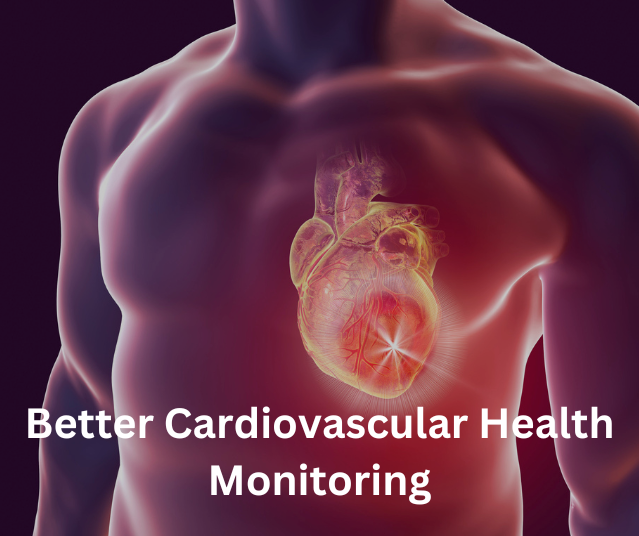
Cardiovascular illnesses continue to rank among the top killers worldwide. An electrocardiogram (ECG), stress test, echocardiography, and evaluation for elevated C-reactive protein (CRP) are all part of the comprehensive battery of cardiac diagnostic procedures that make up the Master Health Checkup. These checks can identify issues with cholesterol, blockages, and arrhythmias. The risk of cardiovascular disease can be drastically decreased by early detection of cardiovascular sickness, behavioural adjustments, and therapy.
Cancer Screening for Early Detection
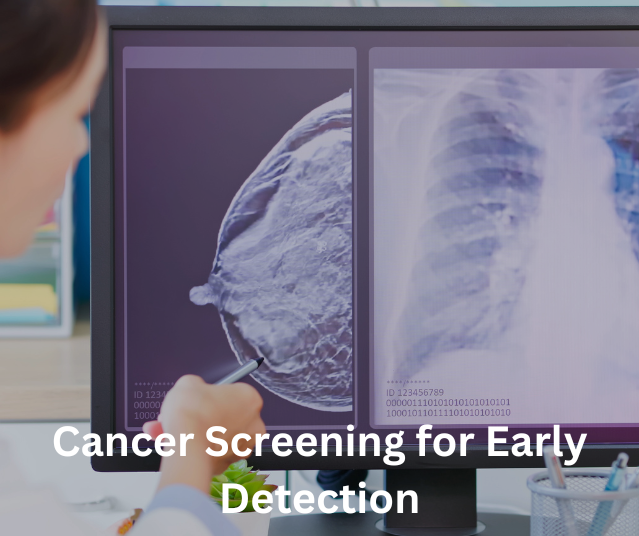
Cancer is a life-threatening disease that often goes undetected until it reaches an advanced stage. A Master Health Checkup includes cancer screening tests such as Pap Smear, Mammogram, PSA Test, and Colonoscopy to detect early signs of cancer. Identifying cancer at an early stage greatly improves the chances of successful treatment. Regular checkups, especially for those with a family history of cancer, play a crucial role in preventive healthcare.
Hormonal Balance and Endocrine Health
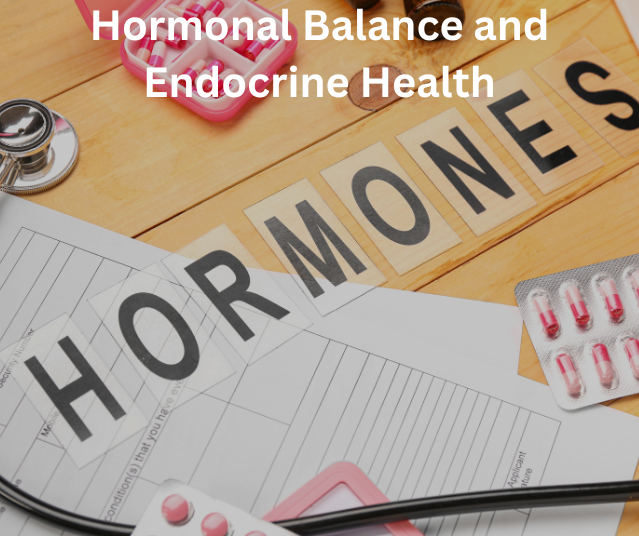
Many health issues, including as obesity, exhaustion, infertility, and metabolic diseases, can originate from hormonal imbalances. Tests for insulin, cortisol, thyroid hormones (T3, T4, and TSH), and other hormones are part of a comprehensive Master Health Checkup. In order to prevent hypothyroidism, diabetes, and adrenal dysfunction, it is important to monitor these hormones to make sure the endocrine system is working correctly.
Vitamin and Nutritional Deficiency Analysis
Nutritional deficiencies are common and can manifest as mental disease, lowered immunity, and chronic fatigue. A Master Health Checkup allows for the testing of essential vitamin and mineral levels, including calcium, iron, vitamin D, and vitamin B12. A lack of vitamins can cause a variety of symptoms, including fatigue, impaired neural function, low bone density, and overall bad health. Supplements and a healthy, well-balanced diet can help make up for these deficits and improve overall health.
Mental Health and Stress Management
It is critical to prioritise one’s physical and emotional well-being. Anxiety, depression, and hypertension are just a few of the medical conditions that persistent stress can worsen. As part of the Master Health Checkup, which may also include neurological and psychiatric evaluations, cortisol levels are tested. Early detection of stress-related health problems is crucial for accessing medical treatment and learning stress management techniques such as yoga, meditation, and talk therapy.
Preventive Health Measures for a Longer Life
An enhanced quality of life and longer lifespan can be yours with the help of a Master Health Checkup, a preventative healthcare intervention. Early detection of potential health dangers allows individuals to take preventative measures, such as improving their nutrition, increasing their physical activity, and adopting intelligent lifestyle choices. Regular checkups are critical to maintaining good health over the long term, and prevention is always better than cure.
Personalized Health Insights and Medical Guidance
A Master Health Checkup also has the added benefit of providing you with personalised health insights. Doctors evaluate test results and provide individualised recommendations based on each patient’s specific health condition. Now that we know more, we may maybe make healthier choices and implement the necessary changes to avoid getting sick. An individual’s health can be better tracked with a personalised approach to monitoring.
Watch Youtube Video For additional guidance:
Conclusion of Master Health Checkup
The Master Health Check and the Basic Health Check are two of the most important tools for preventative healthcare. In contrast to a Basic Health Checkup, which is suitable for routine monitoring, a Master Health Checkup offers a more comprehensive study that can help in the early detection of major disorders. Modern investments in health have led to improved health and greater life expectancy. Choose the best checkup for your needs and take responsibility of your health.
FAQs of Master Health Check
What is a master health checkup?
A master health checkup is a comprehensive health assessment designed to evaluate your overall health. It involves a series of tests and examinations that help identify potential health issues early, allowing for timely intervention and preventive care.
Which is best test for full body checkup?
There isn’t a one-size-fits-all answer, as the best tests depend on individual health needs. However, common components of a full body checkup include:
- Blood tests (cholesterol, blood sugar, liver and kidney function)
- Urinalysis
- Physical examination
ECG for heart health Consulting with a healthcare provider can help tailor the tests to your specific needs.
What is included in a health check up?
A standard health checkup typically includes:
- Blood tests
- Urine tests
- Physical examination
- Vital signs monitoring (blood pressure, heart rate, weight)
- Imaging tests (if necessary)
- Lifestyle and dietary assessments These components aim to provide a thorough overview of your health.
What to do before master health checkup?
To prepare for a master health checkup, consider the following:
- Fast for 8-12 hours before blood tests, if instructed
- Stay well-hydrated
- Bring a list of medications and any relevant medical history
- Wear comfortable clothing for physical examinations Following these steps can help ensure accurate test results.
At what age is a full body checkup best?
While health checkups are beneficial at any age, it’s generally recommended to start regular full body checkups around age 30. For those with risk factors or a family history of health issues, earlier assessments may be advisable. Consulting a healthcare provider can help determine the appropriate timing for your checkups.
